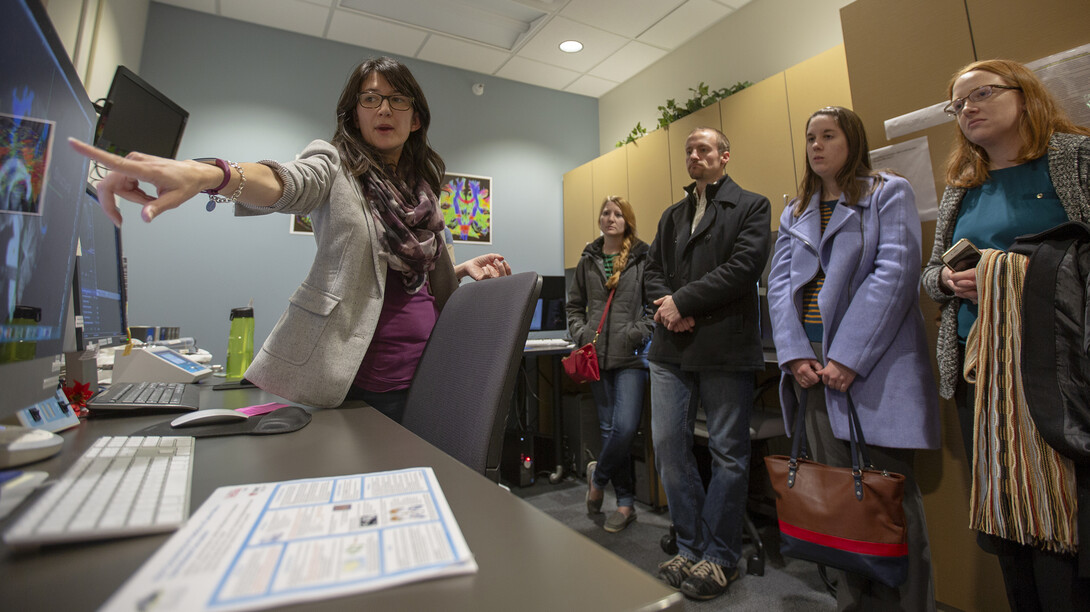
Legislative staff from across the Cornhusker State received an intensive, behind-the-scenes look at research and learning spaces at the University of Nebraska–Lincoln on Nov. 30.
The day-long event included tours of some of Nebraska’s most impactful research programs, including the Center for Brain, Biology and Behavior; Mid-American Transportation Center; Animal Science Complex; and the Barkley Memorial Center. Topics ranged from ongoing concussion studies and roadside safety testing to veterinary science education and speech language outreach.
“This is a special opportunity that we extend to legislative aides and all elected officials on a regular basis,” said Michelle Waite, assistant to the chancellor for government and military relations. “Our goal is to show them a variety of spaces, from research endeavors to areas that should be of interest due to public policy issues.”
The tour also allowed the aides to meet directly with university leaders — including Chancellor Ronnie Green — and researchers.
“I think this kind of day is incredibly useful for us,” said Mitchell Park, an appropriations analyst and legislative policy aide for District 48 Senator John Stinner Sr. “In the work we do as legislative aides — be it drafting legislation to hearing from constituents — it’s beneficial to know about various university research programs and initiatives so we can be conversant on these topics.”
Prior to an interactive walkthrough of the Center for Brain, Biology and Behavior — a multidisciplinary lab within East Memorial Stadium and dedicated to diverse studies into brain function and its effects on human behavior — legislative staff listened to a lunch presentation by Kevin Smith, chair and professor of political science.
In the talk, Smith discussed his research into how biology and psychology impacts political attitudes and behavior. Learn more about Smith’s research at Nebraska.
The CB3 tour allowed aides to learn directly about research into concussions, including how the Husker football team works with campus scientists; inner ear balance influences; using saliva to enhance areas of study; eye tracking techniques; and how virtual reality is helping advance brain-related studies.
The day concluded with direct discussions with Nebraska research leaders in areas of public policy, economics and natural resources. Those talks were led by Nebraska’s Mario Scalora, director of the Nebraska Public Policy Center and a professor of psychology; and Eric Thompson, director of the Bureau of Business Research and a professor of economics.
“It was a busy but good day,” Waite said. “It allowed us to show the impacts Nebraska’s flagship, land-grant, research institution makes on the state, nation and world. It also helps us develop contacts for in the future when legislators have questions about the university.”







